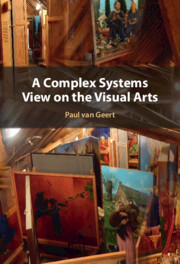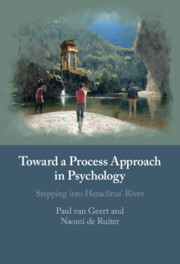Refine search
Actions for selected content:
5 results
Chapter 4 - Describing Art Through the Lens of Complex Dynamic Systems
- from Part I - Art as a Complex Process
-
- Book:
- A Complex Systems View on the Visual Arts
- Published online:
- 20 March 2025
- Print publication:
- 03 April 2025, pp 73-92
-
- Chapter
- Export citation

A Complex Systems View on the Visual Arts
-
- Published online:
- 20 March 2025
- Print publication:
- 03 April 2025
Chapter 5 - A Person Acting amongst Persons
-
- Book:
- Toward a Process Approach in Psychology
- Published online:
- 14 July 2022
- Print publication:
- 28 July 2022, pp 86-114
-
- Chapter
- Export citation
Chapter 8 - (Compl)explanation and King Alfonso’s Lament
-
- Book:
- Toward a Process Approach in Psychology
- Published online:
- 14 July 2022
- Print publication:
- 28 July 2022, pp 160-188
-
- Chapter
- Export citation

Toward a Process Approach in Psychology
- Stepping into Heraclitus' River
-
- Published online:
- 14 July 2022
- Print publication:
- 28 July 2022
